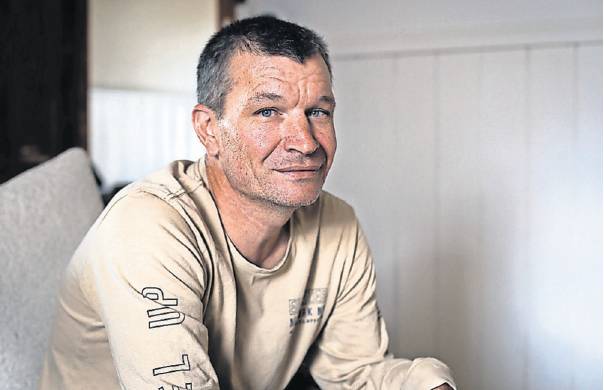‘Step-down’ support breaks the prison cycle
An organisation that helps divert people from prison says stability starts with housing.
Australia’s prisons are not full of ‘bad’ people, says Vaughan Winther, chief executive of the Australian Community Support Organisation (ACSO). Most are people who could be better dealt with in the community, provided support services are made available to them.
“The majority of people that make up the prison system are homeless, have a cognitive impairment, untreated mental illness and substance abuse issues – and 50 per cent of them will reoffend once they have been released primarily because there is no integration of support services for them in the community,” says Winther.
According to a report by the Productivity Commission, Australia’s Prison Dilemma, more than 40,000 Australians were in prison in 2020. However, many more flow through the system each year, with more than one third on remand waiting for trial or sentencing. And nearly 60 per cent have been in prison before, with a high percentage of them from First Nations communities.
“Rising imprisonment of First Nations people continues to be a failure of criminal justice systems across Australia – to progress genuine reconciliation and treaty processes all communities need to demand that this is turned around,” says Winther.
Two years ago, Clayton Foster was partway through a 14-year sentence in a Victorian prison. It was the sixth term he had served and he says if it wasn’t for the support of ACSO, he would probably still be inside today.
“There were some compulsory therapy courses you had to do before the parole board would consider your case. But for me, they weren’t useful,’’ he says. ‘‘The support I got on the outside is what has changed everything for me. I can proudly say that I’m no longer a recidivist due to the help ACSO gave me.”
That support included six months in supported housing, with a caseworker to help Foster navigate myriad unconnected services. ACSO has a focus on diverting or reintegrating people from prison through a range of community programs.
Sequencing those support services is a critical step that is missing from the criminal justice system, says Winther, and it is resulting in rising incarceration rates and people ending up in prison who should not be there.
“What I’m talking about is not something new and is not something radical – it already exists in mental health centres and in exits from hospitals,’’ he says. ‘‘It’s called ‘stepdown’ and it is a way of transitioning people from different levels of care to ensure that their needs are met.”
Underpinning the reintegration of prisoners is the concept of supportive housing, says Dr Danny Sullivan, an ACSO board director and forensic psychiatrist working in a senior role in public mental health in Victoria.
The supportive housing model will be covered in a discussion on ‘Innovation in Preventing Incarceration’, one of the key themes of this year’s International Criminal Justice Conference, to be held in Melbourne on November 22-24.
“There are insufficient resources available in community settings to provide for people with mental health disorders or impairments, and in particular supported accommodation, which can reduce instability and consequent risk of offending,’’ says Sullivan.
‘‘ACSO is really clear on supportive housing being the answer to ensure people get the right services they need at the right time.’’
He says that in the coming years, governments will need strong collaboration with the not-for-profit sector, as well as investment from private enterprise and the corporate sector, to meet the challenges of reducing the economic costs and social harms of the criminal justice system.
